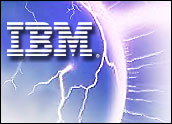
IBM made several developments in its RFID (radio frequency identification) partner and product platform that should make software and hardware integration of the technology easier for firms, the company said.
For starters, standards organization GS1 EPCglobal certified the IBM WebSphere RFID Information Center as fully compliant with its EPCIS (Electronic Product Code Information Services) standard, which provides a data model for the shipping and receiving of uniquely identified objects such as units or cases.
IBM also introduced support for a newly ratified reader interface open standard. Finally, it reported that eight device manufacturers have implemented the Eclipse open source device model to interface their devices with the IBM Premises Server 6.0.
More Options
“The more devices that are capable of linking into the sensor stack only expand the options available to end users,” explained John Delpizzo, sensors and actuators solutions executive at IBM.
With a standard way of linking in or interfacing with an RFID system, companies can more easily swap out hardware or upgrade software, he told CRM Buyer.
IBM is one of a handful of firms that have achieved EPCIS certification.
EPCIS not only provides a data model for shipping events but also defines interfaces for capturing product movement data and for the sharing of that information with trading partners. One benefit of standardization — and certification to that standard, IBM explains — is that trading partners can collaborate via EPCIS data sharing to achieve pedigree compliance and reduce shipping discrepancies.
Indeed, the newest version of WebSphere RFID Information Center includes a ePedigree feature that provides all participants in the pharmaceutical supply chain with access to historical data on individual bottles or packages of medicine.
The EPCIS standard was ratified in April and conformance testing began last month.
IBM is also providing support for EPCglobal’s newly ratified reader interface standard, which is called Low Level Reader Protocol (LLRP), by contributing the new adapter to the Eclipse. It is working with Impinj to validate the LLRP compatibility of Impinj’s Speedway reader.
IBM’s participation in this project is another avenue through which a larger number of standards-compliant readers will be made available to end users.
Collaboration Efforts
IBM’s partner collaboration will also lead to additional options in this particular space. Alien Technology, Arcom, FEIG Electronic, Intermec, Motorola, Reva Systems, Sirit, and TAGSYS have been approved through the IBM WebSphere RFID Device validation program, which helps device manufacturers ensure interoperability with IBM’s WebSphere Premises Server.
The WebSphere Premises Server enables real-time aggregation and analysis of RFID and other sensor information and is built upon a service-oriented architecture (SOA) foundation to give context to sensor events within required business processes.
IBM shipped its latest version of WebSphere Premises Server, version 6.0, in March. Its device support program is part of the Eclipse open source community.





















































